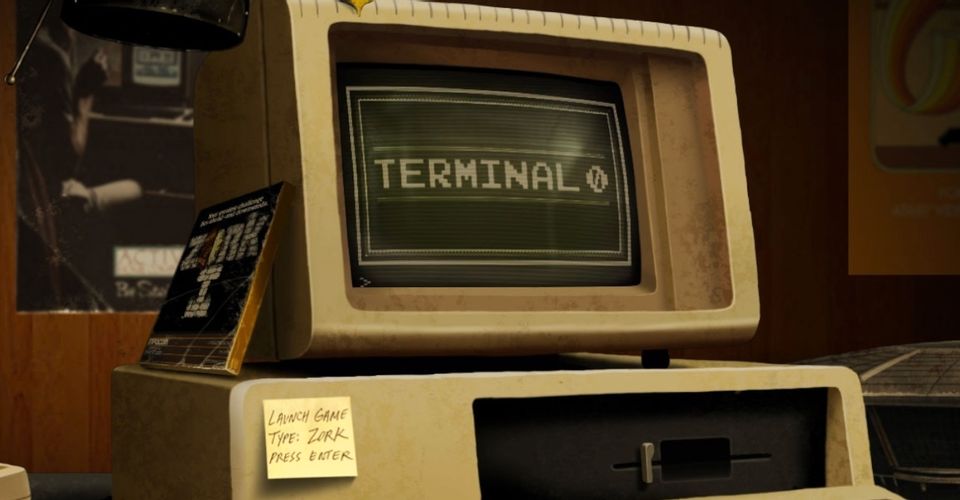What The Zork Games Are (& Why They’re So Important)

Zork might be a name familiar to many gamers. The retro game has received many parodies over time and has been featured in several different forms of media. Perhaps most notably, the classic text adventure game is fully playable through an easter egg in Call of Duty: Black Ops. The game is also being used as a centerpiece of an alternate reality game that is gradually revealing aspects of the upcoming Call of Duty: Black Ops Cold War. But what exactly is Zork, and what makes it such a notable retro title?
Zork is a text-based fantasy adventure game series that first released in 1977 under the title Dungeon. The game was made for PCs, the first version being made for the PDP-10. The game features no graphics or art; it is entirely text based and plays out like an interactive book. The main Zork franchise released as three games from 1980 to 1982.
The first build of the game that went under the title Dungeon was actually the complete Zork trilogy, but when the game was released commercially it had to be separated into three parts due to data compression issues. After the initial trilogy of games, the studio behind Zork, Infocom, was bought out by Activision. Activision worked with Infocom to release several more entries in the Zork series throughout the late 1980s and 1990s.
Zork’s Revolutionary Adventure

In Zork, players take the role of an unnamed adventurer who is trapped in a dungeon called the Great Underground Empire. To progress, players type in various contextual commands in reaction to the story that is written out for them. Players will encounter multiple items, puzzles, and enemies throughout their quest to escape, and it is up to the player’s own intuition to use custom typed commands to escape the dangers of the dungeon. The game features a humorous and lighthearted atmosphere, which made it stand out from other games at the time and also allowed for its puzzles to have comedic, surprising solutions.
Zork was made with direct inspiration from another text adventure game, Colossal Cave Adventure. Zork features a much more elaborate story and text input system compared to Colossal Cave Adventure and other games from the time. Colossal Cave Adventure only allowed the input of simple verb-noun phrases such as “take lamp,” for example, and other text games from the time, and even future text adventure parodies copied this simple input style. Zork was very unique for the genre because it introduced a more powerful parser system, so players could input commands made from elaborate sentences. Of course there was still a limit to the accepted text phrases in Zork, but the way the player typed them out could be much more natural. Rather than basic two word commands, Zork allowed players the freedom to write commands in a way that felt like they were directly continuing the written story.
Zork is a significant piece of video game history because it was a major step forward for interactive media. The game featured a single player experience with a complex world, lore, and puzzles. Players were able to create very personalized experiences thanks to the game’s powerful input system. It was one of the first video games to come released with a printed instruction manual and visual map to help enhance player’s understanding of the game’s layout. Despite being a single-player game, Zork brought people together by inspiring players to work together to come up with solutions and exchange strategies to solve the game’s difficult encounters. A majority of games from the early 1980s were either single-player score-based games or competitive multiplayer games, so PC adventure titles like Zork were truly unique for the time, and helped show the true potential of video games as an entertainment medium.
Modern players interested in experiencing the Zork series can pick up the ZorkAnthology on Steam, which features six entries from the Zorkseries including the first three main entries as well as Beyond Zork, Zork Zero, and Planetfall.
About The Author
















